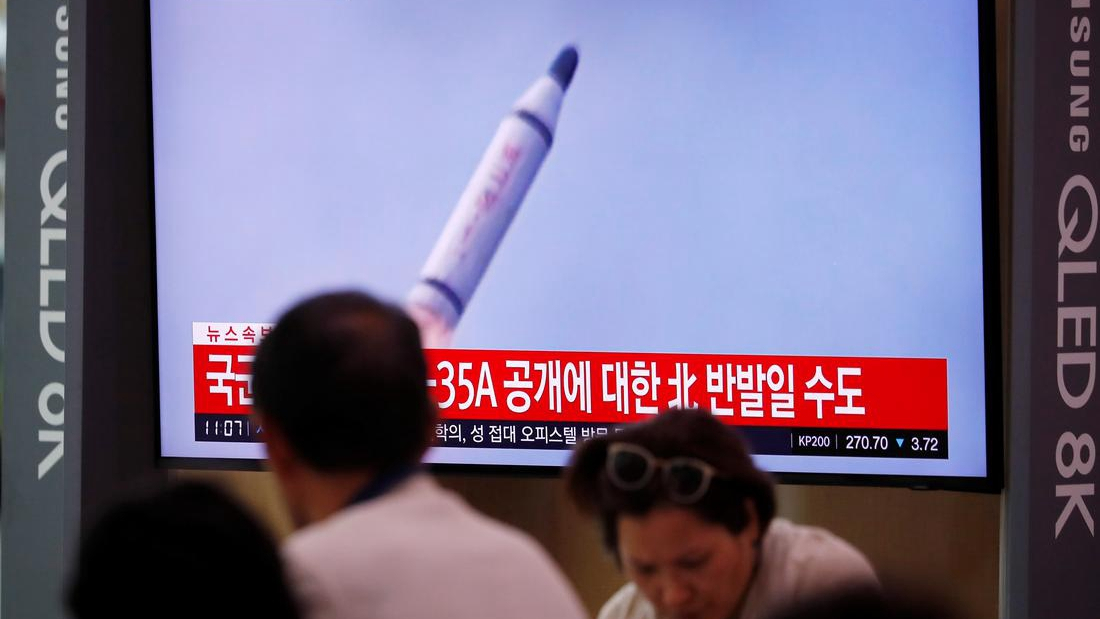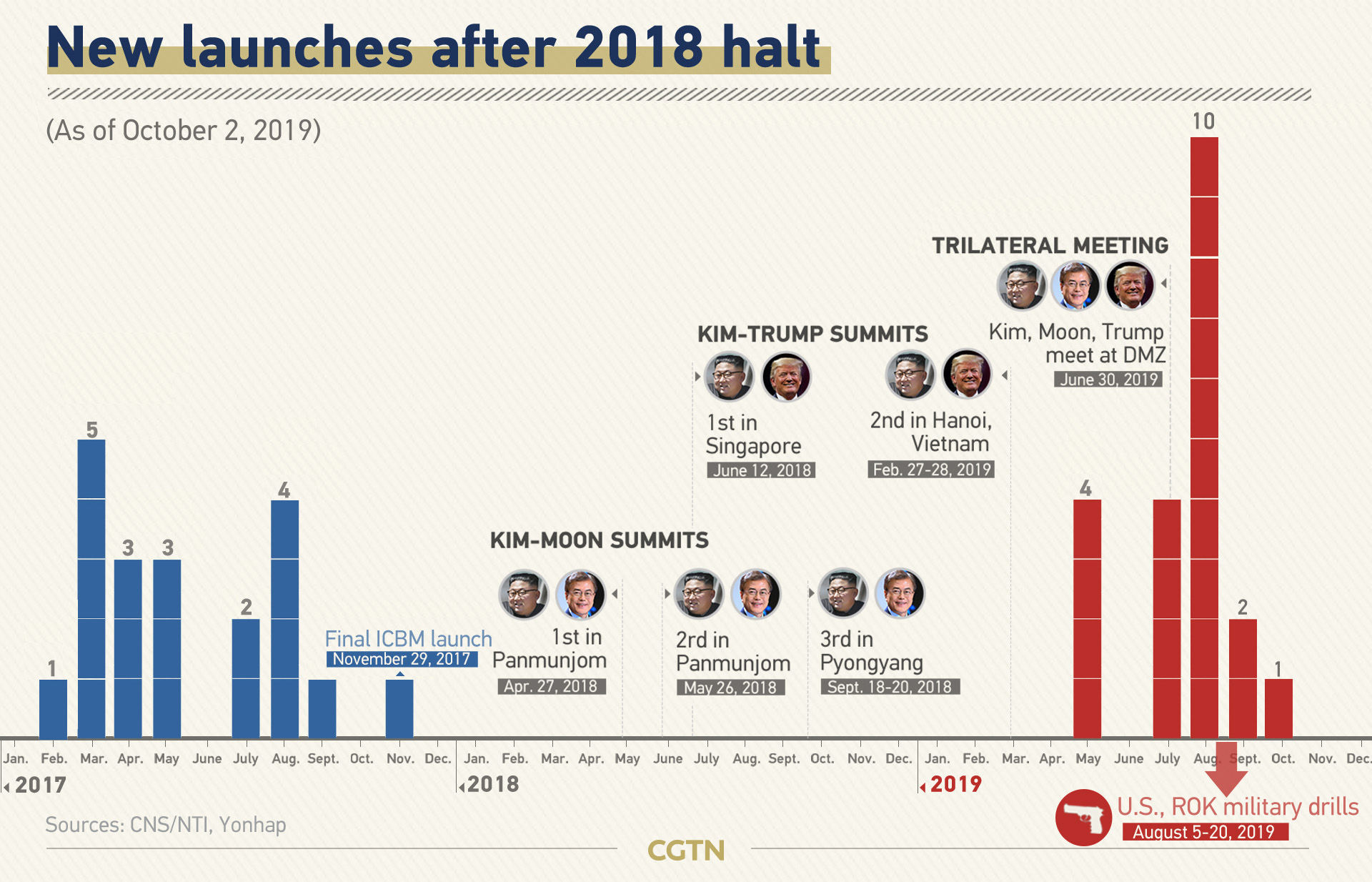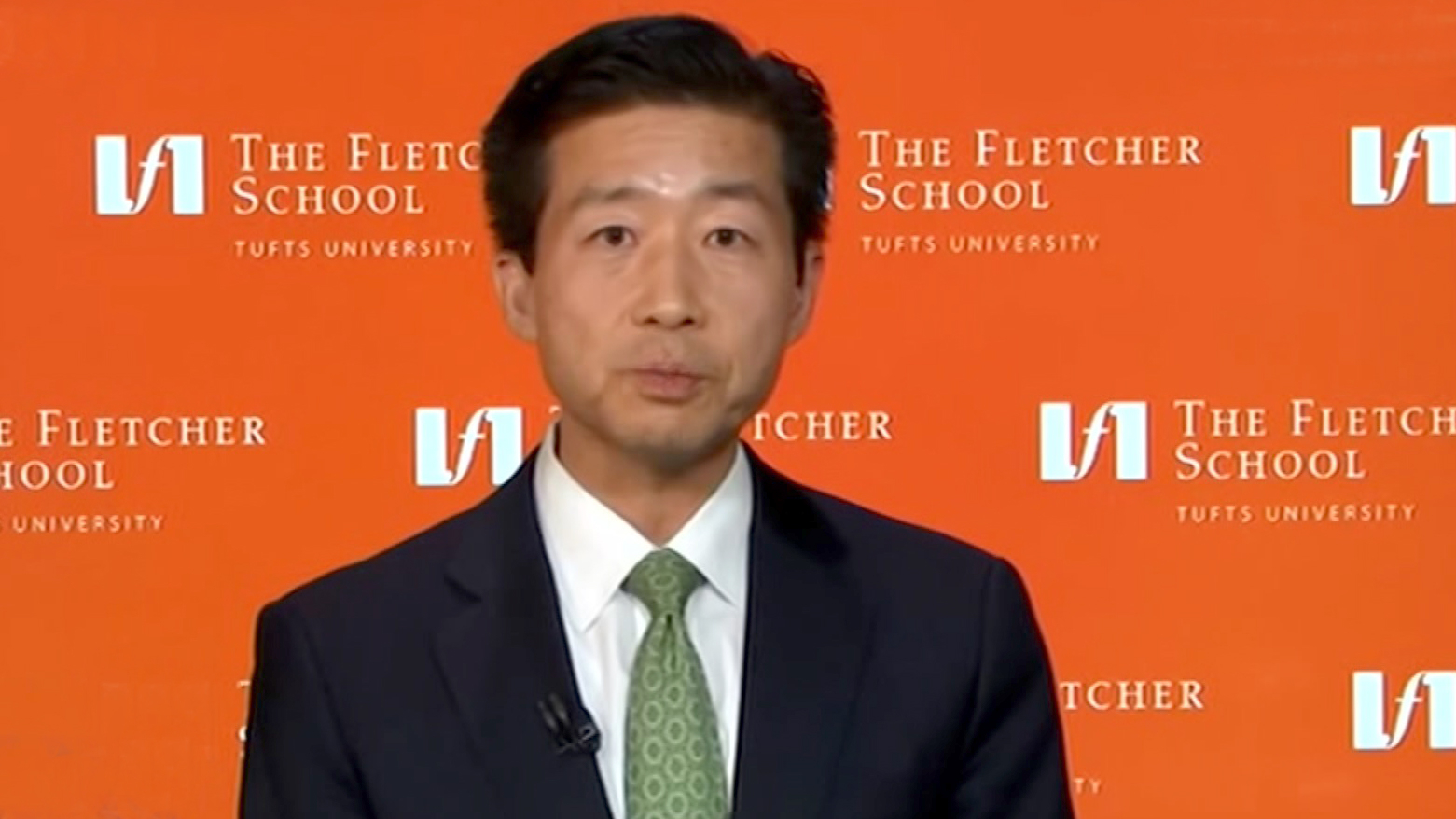02:02

The Democratic People's Republic of Korea (DPRK) said on Thursday it had successfully test-fired a new submarine-launched ballistic missile (SLBM) from sea to contain external threats and bolster self-defense, ahead of fresh nuclear talks with the United States.
DPRK's leader Kim Jong Un "sent warm congratulations" to the defense scientists who conducted the test, state news agency KCNA said.
The new type of SLBM called Pukguksong-3 was "fired in vertical mode" in the waters off the eastern city of Wonsan on Wednesday, KCNA said.
"The successful new-type SLBM test-firing comes to be of great significance as it ushered in a new phase in containing the outside forces' threat to the DPRK and further bolstering its military muscle for self-defense," it said.
The test "had no adverse impact on the security of neighboring countries," KCNA said but gave no other details about the launch.
Shortly after the test, the United States State Department called on Pyongyang to "refrain from provocations" and remain committed to nuclear negotiations.
"We call on North Korea (DPRK) to refrain from provocations, abide by their obligations under UN Security Council Resolutions, and remain engaged in substantive and sustained negotiations to do their part to ensure peace and stability on the Korean Peninsula and achieve denuclearization," a U.S. Department of State spokesperson said in Rome.
The two sides will have "preliminary contact" on October 4 and hold negotiations the following day, DPRK's Vice Foreign Minister Choe Son Hui said in a statement reported by KCNA. A State Department spokesperson later confirmed the talks, which she said would happen "within the next week."
Read more:
DPRK, U.S. to hold working-level talks on October 5
'New phase' of containment
The launch was the ninth since U.S. President Donald Trump and DPRK leader Kim Jong Un met at the heavily guarded Demilitarized Zone between the two Koreas in June.
The DPRK's previous missile launch was on September 10, also hours after Choe had expressed Pyongyang's willingness for talks with the United States.
Talks aimed at dismantling DPRK's nuclear and missile programs have stalled since the second summit between Trump and Kim in Vietnam in February ended without a deal.
Trump has played down the recent series of short-range launches, saying in September Washington and Pyongyang "didn't have an agreement on short-range missiles" and that many countries test such weapons.
Read more:
DPRK fires two unidentified projectiles

Japan: One instead of two
Japan's top government spokesman said on Wednesday the ballistic missile the DPRK launched earlier in the day may have split into two before falling into waters off Japan's west coast.
The Japanese government earlier said the DPRK appeared to have launched two missiles within minutes of each other and that the first of them fell in waters within Japan's Exclusive Economic Zone.
"At the moment, it seems that one missile was launched and that split into two and fell. We are conducting analysis for details," Chief Cabinet Secretary Yoshihide Suga told a news conference.
Japan's Coast Guard said earlier in a statement that the DPRK had launched what appeared to be a missile and urged vessels to pay attention to further information and not to approach any debris.
Japanese Prime Minister Shinzo Abe condemned the launch, saying it was a violation of United Nations Security Council resolutions.
03:59

ROK: May be a submarine-launched ballistic missile
The ROK's military said it detected one missile that flew 450 km and reached an altitude of 910 km. The missile was launched from around Wonsan, the site of one of the DPRK's military bases on the east coast, towards the sea.
The National Security Council in Seoul expressed "strong concern" over the launch of what it said may have been a submarine-launched ballistic missile (SLBM), according to a statement issued by the presidential Blue House.
The DPRK had been developing SLBM technology before it suspended long-range missile and nuclear tests and began talks with the United States that led to the first summit between Kim and Trump in Singapore in June 2018.
The DPRK continued its attack against the ROK in a commentary in its official newspaper on Wednesday, criticizing its joint military drills with the United States as "unchangingly aggressive."
Sung-Yoon Lee, a professor in Korean studies at Tufts University, a specialist on Korean Peninsula issues, told CGTN that the DPRK is playing mind tricks with the United States. The repeated launches with no repercussions show the DPRK has successfully compelled the U.S. to regard these short-range missiles tests as a routine fact of life.
(With input from AFP, Reuters)